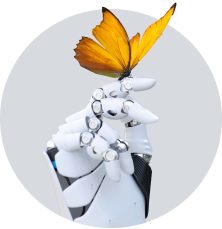Skills and personality traits in the labor market
In the current dynamic work environment, the skills and personality traits of employees hold substantial significance in fostering corporate growth. Professional or hard skills, acquired through academic institutions, courses, seminars, and practical experience, equip employees with the tools and knowledge to perform their job responsibilities effectively. Concurrently, personality traits or soft skills influence the way employees communicate and collaborate with others, their efficiency in time management, and ultimately shape the internal climate and culture of the organization.
During the hiring process and candidate evaluation, it's important to recognize the value of both hard skills and personality traits. An overemphasis on professional skills alone may not yield the desired outcome, and vice versa. It is the equilibrium between these two facets that facilitates the creation of a strong team, adept not only at performing their assigned duties but also at managing diverse challenges. This, in turn, fosters company growth through their attitude, innovative ideas, creativity, and collaborative abilities.
Determining necessary skills and personality traits in potential employees is guided by the job requirements, company culture, future plans, and current labor market trends. To ascertain the most in-demand skills and personality traits currently, CV-Online Latvia, a company within the Alma Career group, conducted a survey amongst employers and employees in October of this year.
Survey: skillsets and personality traits within the labor market
Based on the survey conducted by CV-Online Latvia on skills and personality traits, employers primarily evaluate a candidate's suitability for a specific job position based on prior work responsibilities. This is followed by soft skills and hard skills, then education and previous job.
The survey revealed that irrespective of the position held, employers desired their potential employees to possess skills such as professional industry knowledge, digital skills, and language proficiency. Additional expectations from specialists and assistants included the ability to follow instructions and multitask. In the case of managers, 90% of respondents emphasized the importance of team management skills. Conversely, 78% of employers expected workers in simple professions to have the ability to perform physical work.
In terms of employee personality traits, employers prioritized communication and cooperation skills, autonomy (the ability to set priorities, plan work and time), and precision.
Similar to employers, workers deemed professional industry knowledge, multitasking abilities, digital skills, and language proficiency as the most critical skills. The most vital personality traits in the labor market were identified as autonomy, stress resilience, communication, and cooperation skills.
Of the surveyed workers, 46% confirmed they are currently employed in a sector unrelated to their education. The preparedness for the labor market post-graduation was rated as average, scoring 3.8 on a scale of 1 to 7. Employers expected academic institutions to equip graduates with learning skills, vocational training graduates with basic skills and theoretical knowledge in their chosen profession, and university graduates with theoretical knowledge and practical experience in their chosen field, as well as analytical and logical thinking skills.

Looking to the future
As we become more accountable for sustainability, with the ongoing digital transformation and the integration of artificial intelligence in our daily lives, and the creation of innovative solutions to maintain competitiveness, industries are evolving and so are the skills required for the labor market.
Forecasts by the World Economic Forum and other experts suggest the most sought-after skills and personality traits in the next decade will include creative, analytical and critical thinking, digital and technological proficiency, lifelong learning, emotional intelligence, the ability to work with artificial intelligence, flexibility, and data handling skills.
To avoid a "skill gap"—a discrepancy between employer expectations and employee skills—it's crucial for employers, academic institutions, and the state to encourage and provide opportunities for employees to enhance existing skills, learn new ones, and retrain if necessary.
Resume
In conclusion, the rapidly changing workforce dynamics underscore the importance of a harmonious interplay between hard skills and soft skills. Employers and academic institutions must work hand-in-hand to ensure that the talent pool is not only professionally competent but also equipped with essential personality traits that foster a positive work culture and drive corporate growth. Moreover, with the rise of artificial intelligence and digitalization, it is imperative that we anticipate the skills of the future and prepare the workforce accordingly. Collective efforts to bridge the existing skill gap, coupled with a commitment to continuous learning and adaptation, will help ensure that the labor market remains resilient and well-equipped to navigate the challenges and opportunities of the future.

Why Training Alone Won’t Keep Employees from Leaving

Transparency, Data, and People: What We Learned at the HR Time Gathering in Zagreb

News for the User Experience Community: UX Research Academy for Everyone – Completely Free













